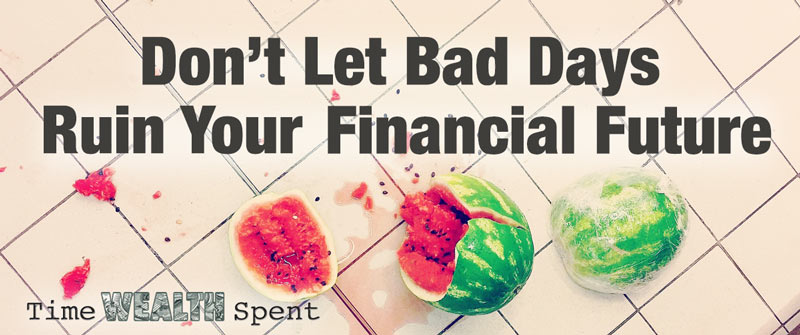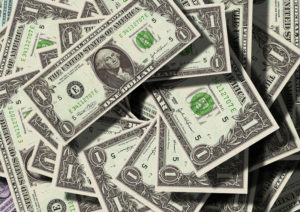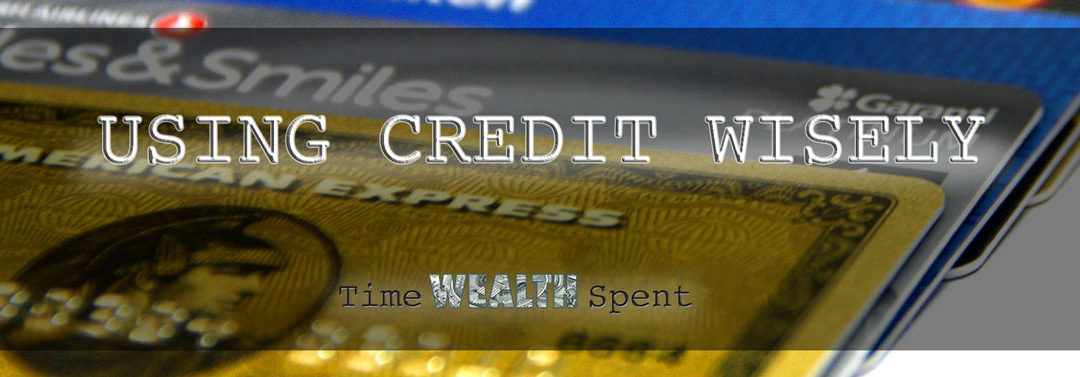
by Scott | Dec 10, 2016 | Paying Down Debt
Debt habits are easy to form, and the bad debt habits are hardest to break. Once you get used to spending money in places where you shouldn’t, you can easily overlook the money you’d save on a monthly basis. Keep yourself focused on the long-term and try to avoid or restrain some of these common debt habits:
Banking Fees
When signing up for a new checking or savings account, always ask for the no-fee option. If there are minimum balance requirements, look elsewhere. Most banks have account options that are fee-free as long as you don’t overdraft or use foreign banks. The strategy is to not have a lot of extra money sitting in checking and savings accounts. While it’s great to have liquid cash, it does very little for your long-term financial stability and you’re more likely to spend it when it’s not making you money. Keep enough money in a checking/savings combo to cover overdrafts, but no more than a few months living expenses.
If the bank doesn’t give you checks, buy them elsewhere. There are many check printing companies that will give you a much better deal. But with today’s online banking features, there is little need to physically write checks anymore.
Dining Out

How often do you eat out per month? How much is your average bill? Going out every Friday night and spending $100 is a $400 monthly habit, and more than $5000/year. That’s just from one night out a week! It’s great to spend time with friends, but if your retirement account is not where you need it to be, these are some of the best places to cut back. Try a different restaurant, order the specials, or cut back on the number of drinks you order. There are many ways to cut down the costs of dining out without cutting back on fun.
House Poor
I hear this term in my social circles far more than I should. There is no reason to make yourself house poor by overspending on your house and cars, or anything else for that matter. When buying a home, make sure you have enough money for a down payment, another 10% to cover moving and renovations, and at least 20% of your net income left over for anything that comes your way. If you spend all of your money buying your house, you’re going to have a hard time enjoying it with no furniture, old carpets, or other things you spend everyday wishing you could change. Don’t put yourself through that frustration just to have your name on a deed.
Impulse Buy
I can’t tell you the number of times I’ve impulsively purchased something and later realized that the pitch was the only reason I did. Sure, the pitch was great, but what was I doing watching that commercial or looking at that end-cap. It’s all about realizing that the end-caps and commercials have one purpose – to sell you whatever is on or in it. It looks like a good deal? Sure does, that’s the point. Stay above the influence and stick to a list while shopping. If you see something in a commercial you think you can’t live without, do some research on it. You might find that after 15 minutes of reading reviews, you didn’t really want it anyway.
Therapeutic Shopping
Unfortunately, therapeutic shopping is a topic I’m also familiar with. I’ve lost people in my life that have made shopping a therapy rather than a purposeful destination. It takes courage to realized that you’re therapeutic shopping, and even more courage to put those feelings aside. As easy as it is to say it, it’s much harder to realize how much more that money will mean to you tomorrow, next week, or a year from now. Whatever it is you are buying, it is not important. Your feelings are important, so I encourage you to write those feelings down. Instead of shopping, visit a park and take a walk, or spend the money on a ticket to a museum. Seeing new things will help you process your feelings. If you continue to feel like you’re outside your comfort zone, reach out to family and friends for help. Never feel ashamed to talk about your feelings – you are just as important as everyone else on this earth.
Reward Shopping
One of my favorites as a kid, reward shopping can be both beneficial and challenging. My parents used to reward us with $25 for a report card showing a B average or better. This was used mostly for new video games, remote control cars, baseball cards, and other things that have little value today. The excitement of getting them at the time, however, is priceless. Giving children a reward for good grades is a great way to exercise reward shopping. Sometimes, you want to reward yourself, like when you’re promoted or get a raise. Don’t be afraid to splurge a little on yourself from time to time, it’s just as important as the rewards we got for good grades. It’s just that we get to choose the amount. Be responsible by capping your rewards and you’ll end up happier with your purchase in the long run.

by Scott | Dec 4, 2016 | Reducing Utility Bills
Saving money on utilities is something we’d all like to do. It’s almost like money down the drain every month, well some of it. While the modern comforts are great, there’s no need to waste it. By following a few simple steps, you can cut your utility bills down and put that money in a better place. Here are a few suggestions on how to reduce electricity, water and gas bills:
Using Less Electricity
What if I told you the secret to using less electricity is not having so much stuff that you requires power? That’s part of the secret, the other part being you can create your own electricity using solar panels. There are many ways you can reduce your electrical usage, let’s explore a few ways:
- Solar power – you can add panels to your roof that will provide power to your home during the day, and whatever is left over can be fed back into the grid to reduce your electricity costs overnight. Many people end up with near zero bills or receiving money back.
- Unplug your devices – unplugging adapters, computers, TVs, appliances and other electronics is a great way to save on electricity. They all consume power when they’re not in use, and this is especially true when you’re away from the house for extended periods of time or on vacation. Unplug these items and save.
- Look for efficiency when buying – always check the energy star tag on your TV, appliance or other devices to see how much power they consume. If you’re buying an appliance that uses 2x the power of its competitors, look to find out why. An inefficient refrigerator can be more costly than just power, especially if it cannot keep food properly cold.
Using Less Water
It should seem obvious to us the ways that we can reduce water usage, but so many homes look past this and just leave their usage status quo. I’m always eyeing the rate usage on our utilities year-by-year, month-by-month, so I know when we’re using a lot of water, and when we’re not. We have a pool in our backyard, so we use more water during the summer trying to keep it topped off than we do at any other time. It takes hundreds of gallons during the summer. During the winter, dozes, so it’s far less usage. But how do we really reduce water usage?
- Run sprinklers for less time – if you have a programmable sprinkler system, program it to run for 5 minutes rather than 10. Check your sprinkler nozzles for damage and make sure they’re aimed at foliage and not driveways and sidewalks.
- Take shorter showers – I know this may be the most difficult to actually accomplish, but showers are one of the biggest water hogs in your home. Try timing your shower to see if you’re going over 10 minutes. If you shower daily (which I recommend), even 2 minutes a day is over 1 hour of running water a month. That could equate to hundreds of gallons. Use your water and your time wisely.
- Don’t prewash your dishes – how many of us wash our dishes before we put them in the dishwasher? I remember a friend saying, ‘But I didn’t use soap,’ as if that were the reason they needed to be washed twice. You could easily have used soap as you scrubbed them and skipped the dishwasher altogether. If you’re using a dishwasher, let it do its job. If you hand wash your dishes, finish the job. It’s one of the few things we wash twice. But think about it this way – do you wash your hair and face before you get in the shower, and then wash it again?
Using Less Natural Gas
If you have natural gas in your home, you know how easy it is to run up the bill using the heating system or gas fireplace. Gas fireplaces look great and don’t create a mess, so it seems natural to want to run it all the time. This could add up to one costly gas bill. It’s a good idea to limit your gas fireplace usage to a couple of hours a day at most. Running it for 4+ hours a day will add up quickly and add quite a bit to your monthly utilities bill.
Measuring Electrical Use
If you don’t already have one, I recommend buying a device like the Kill-a-watt to measure current draw. Knowing how much electricity your devices use is the first step in know what to curtail. It’s easy to measure, and they aren’t expensive at all (~$20).
Measuring Water Use
Measuring water can be done with little effort, but it’s not as easy as using a Kill-a-watt. For example, measuring water use in the shower is as easy as timing how long it will take to fill a 2 gallon bucket. If it takes 1 minute to fill, your shower uses 2 gallons/minute. Your toilets will list how much water each flush uses. Your kitchen sink will have to be measured like your shower, but you can figure out exactly how much water is being used while your faucet runs, which will help remind you to shut it off after it’s been running alone for a few seconds.
As you can see, measuring your electrical and water use is an easy task, and will help you understand where your money is going on utilities. Be aware of how you’re using power and save the money that is otherwise wasted every month.

by Scott | Nov 28, 2016 | Smart Shopping
Bad days are inevitable. Some days are very bad, and depending on how you cope with those days, they could be the most financially devastating days of your life. I’ve seen so many people fall into a financial hole because of depression, substance abuse, and poor diet, among other causes. It’s heartbreaking to see your closest friends dealing with pain that you cannot fix. It’s tougher when the person who is dealing with it is you.
Admit your day was bad and move on – it may sound easier than it actually is, but admitting your day was terrible is a great start to moving on from it. You can dwell on how bad it was and look to therapeutic shopping as a remedy, but that will often end in buyers remorse, which is another depressive state. Look for outlets that allow you to process your frustration like reading, coloring or spending time outdoors.
Avoid shopping to lift spirits – therapeutic shopping can devastate even the biggest bank accounts. Once you’re sad and you find that shopping lifts your spirits, there isn’t a store big enough to satisfy your demand. When you’re feeling down, call a friend, visit a park, and do anything other than going to the store. The store doesn’t have what you’re looking for, I promise.
Keep a journal – one of the best ways to offset bad days is to review the good days you had in your journal. Every day is a new beginning, so you don’t have to dwell on whatever has you down today. Write in your journal at least a few times a week to keep it current and relevant.
Dive into a hobby – thinking about taking up painting? Or do you want to learn how to play the guitar? Both of these hobbies are a great way to challenge yourself without breaking the bank.
Volunteer – whether at the local animal shelter, a senior center, or to help the veterans, there are many ways you can volunteer your time. This is also a great way to meet like-minded people who care as much as you do. Websites like Volunteer Match are a great place to find volunteer opportunities in your area.
There are many ways to distract yourself from the pain of a bad day. Especially when there are a string of bad days line up together, it can get tough to focus on the big picture. Know that impulse shopping, drugs, alcohol, and junk food aren’t the answer. Focus on yourself in the dark times and you’ll come out stronger and happier in the long run.

by Scott | Nov 26, 2016 | Smart Shopping
Earning Cashback
There are many ways to earn cashback on purchases. One of the easiest ways is to use an online cashback website like Ebates or TopCashBack. Credit cards, store rewards programs, and rebates are another way. Regardless, cashback is something you’re entitled to on almost every online purchase so don’t let that money slip through the cracks.
Sign up for cashback before you make your purchase. Refer to the list of popular cashback websites below. It costs nothing to sign up with the cashback websites, and many of them have minimal payout thresholds so you can get your money quickly.
Plan Ahead
Plan your purchases ahead of time – most cashback websites offer greater cashback amounts during holidays and promotional periods. For example, the anniversary of the cashback website may trigger an offer for 2x cashback. If you’re planning on making a large purchase like a TV or refrigerator, wait until a major holiday to see if the cashback amount is greater.
Know your categories – many cashback sites limit cashback on specific categories, including gift cards, low-margin goods like laptops, and other items with minimal profit margins. Don’t get confused and make a large purchase only to find your category was excluded. If in doubt, email the cashback website and ask if the purchase will qualify.
Track Your Purchases
Track your purchases – make sure that after you’ve made your purchase, you receive the proper amount of cashback. Mistakes are uncommon, but they do happen. If your cashback amount does not equal the amount you calculated, write to the cashback website immediately. They are often able to remedy these issues right away. If you wait too long, it may be too late to do anything.

Popular Cashback Websites
Active Junky focuses on active lifestyles, so you’ll find stores like REI, Cabela’s, Backcountry, Nike and more. They offer many articles in categories like cycling, mountain biking, kayaking, camping and hiking. Also, check out their buyer guides for an in-depth look at active lifestyle products.
Ebates is one of the largest and most reliable cashback websites on the web. They have over 1,800 active stores and 10,000 coupons. On major holidays, Ebates typically offers double cashback or more at select stores, up to 40%.
Mr. Rebates is a classic cashback website featuring over 2,000 stores. Their simple interface makes shopping cashback easy. Mr. Rebates also offers coupons at many of their cashback stores.
TopCashBack is one of the newer cashback websites, now offering cashback at over 3,500 stores. They bill themselves as the USA’s most generous cashback site and even guarantee the highest cashback.
Don’t wait to sign up for one of these cashback websites. You miss an opportunity to save money every time you place an order online outside of a cashback website.

by Scott | Nov 22, 2016 | Smart Shopping
Using Credit Wisely
In my experience, I found most money making opportunities take capital to get rolling, so I’m always concerned with using credit wisely. It’s tough when you have an idea that you think will really work, but you’re facing an uphill climb. On the flip side, you may really want that new car or designer purse, and you aren’t worried about the cost today. You know you can pay it off later. Both of these scenarios lead to the same path: debt. I minimize this potentially toxic debt by following these guidelines:
Credit and Relationships
Credit cards can make or break any relationship. If your SO doesn’t have the same approach you do, you’ll find yourselves at a crossroads. It’s important that you have the credit card discussion early on in your relationship so you don’t end up fighting over it later on. As long as you’re on the same page, you should be able to keep credit card problems at bay.
Know Your Limits
Know your limits – not just your credit card limit, but your cash limit on a monthly or quarterly basis. Never spend more in one month than your cash flow over a quarterly period.
Credit in Moderation
Don’t have more than 4 credit cards – I’ve heard people say they have 10 credit cards and an 800 score. That’s great, but you’d probably have an 850 with fewer cards. All of that extendable credit actually makes you a risk. If your limits are high (e.g. more than 4x your quarterly cash flow, or more than your overall annual cash flow), request that the banks lower them to a more reasonable level. Try to keep your limits under your annual cash flow.
Avoid Store Cards
Don’t use store cards – ever! There is nothing to be gained from a store credit card other than a large credit limit that’s only useful in the store itself. It’s actually a detriment to your credit, so be careful when the salesperson tells you that price is only good if you use the store card. That’s usually a sign that their profit margins are too low to sustain business without pushing their card on you. Avoid the pressure and use one of your bank cards instead, or buy it elsewhere.
Join a Credit Union
Join a credit union – this is probably one of the best pieces of advice I got early on in my adulthood. I joined a credit union at 21 which helped me with my first car loan and subsequent loans since. Each loan was at least 1 point below the industry average. The only times I have not used the credit union is when the manufacturer’s bank offered a better rate, sometimes as low as 0%.
Say No to Cosigning Anything
Never cosign – I cannot stress this enough. The best way to indirectly ruin your credit is to lend it to someone else. No one cares about your credit score more than you do, so once you lend it out to others, expect it to drop. Even if they make every payment on time, you’re still looking at outstanding balances, and the risk of a lawsuit if payments are missed.









Recent Comments